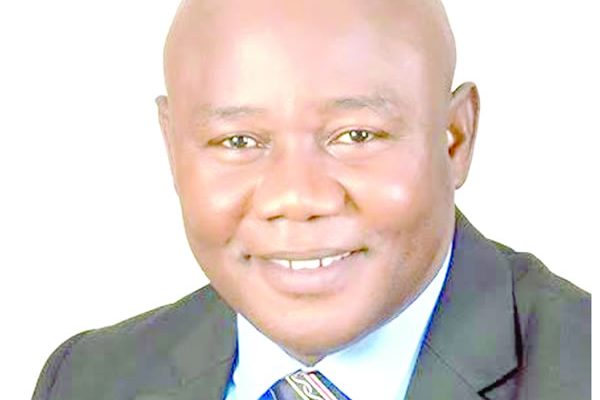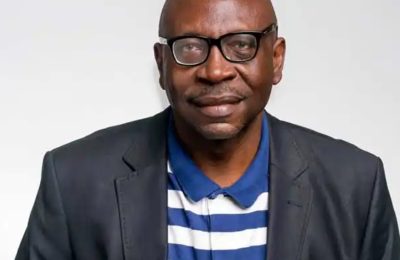Festus Adebayo, a lawyer, affordable housing and mortgage advocate, is the Lead Promoter of African International Housing Show (AIHS). In this interview with DAYO AYEYEMI, he shares positive views about the Nigerian real estate, the role of the government, private sector to reduce the cost of housing units in the country and financial options available to Nigerians when the annual housing show kickstarts next week in Abuja.
How will you describe Nigeria real estate sector?
Nigeria real estate sector is a sector that has huge potential as a result of the growing population every day, every month, every year. Even the so-called economic instability is not having the expected negative impact. The negative impact is in the area of providing for the low-income especially those that are really in need of the houses, but for the high-income earners, the sector is doing beautifully well. For any investor coming to Nigeria and who wants to build luxury homes, there is market for them; but for the low-income earners, there have been challenges of affordability. Majority of these people cannot afford it and, that is why we are calling for the intervention of the government.

I was on a live telecast last two weeks with the Minister of Housing and I used the opportunity to call on the federal government to have an intervention in the sector. You can see what they did in the area of drugs, they are now removing the import duties on drugs because many people are using drugs to control their Blood Pressure (BP). The drug that was selling for N10,000 is now going for lesser price. So the government has to intervene and, that is the kind of intervention we need in the area of housing. In Morocco, if you want to buy N20,000 houses, the government, through the social housing scheme, will provide it, pay it into your account N10,000 out of the N20,0000. The remaining N10,000 is staggered for a period of time. Real estate sector in Nigeria is still the largest in Africa. This is made possible because of the population, and because of the huge resources. The challenge in the sector has to do with the government. The government needs to provide an enabling environment. You can imagine somebody who needs a building approval and has to apply into four, five places with all sorts of bureaucratic procedures. This is not his business. On that note, the state government has to deal with the problem directly and create an enabling environment for real estate developers to thrive. When they thrive, jobs would be created.
On a one-bedroom apartment that is being developed by a developer nothing less than 22 different categories of workers would be engaged before that building can be delivered. This also makes you to know that creating employment, arresting the insecurity in the country and even increasing the health of Nigerians, housing is the way to go.

How does housing help in the health of the people?

When you sleep well, live in a very decent house, I think when you get to work, you would be happy, the productivity would be high. There is correlation between housing and productivity and housing correlation with health. What this connotes is that if you sleep in a slum where the mosquitoes will bite you all the time, the possibility you would be going to the hospital all the time is very high, compared to the person who steeps in a decent one bedroom. This is where we have not got it right. The government must get it right. They are building 250 housing units in each state of the federation, this is just a starting point.
This is the first time we see a minister going from one state to another and they are building it aggressively. What the government is trying to do is to create a revolution, and if this can be sustained and the government can intervene beyond what they are doing now, I can assure you that the sector will experience more boom in the years to come. Everyone needs a house, everyone deserves a house when you work, you need a place to go and rest, and that is why housing is very important.
What is the role of the private sector in bringing down the cost of houses in Nigeria?
For private real estate developers and the government in Nigeria, each of them has its responsibilities to drive the real estate sector. The government has no business in direct construction of houses. What it means is that government cannot deliver affordable housing by giving it out to contractors. The only way it can be done is when the private developers also decide to reduce their profit margin; reduce the profit margin by not cutting corners in the area of building materials to be used; and by not cutting corners in the quality of materials to be used for development. The private sector can drive the real estate sector. The private sector has the capacity to look into the use of local building materials with the objectives of reducing the cost of these houses.It cannot be agreed that we don’t have some resources in this country that can be used for delivery of housing. By the way, houses or buildings that some of our great grandfathers in Ondo, Ekiti, Osun, Enugu States built are still standing, so the private sector should have a new orientation that will make them use local building materials. We are already aware that 100 percent of the materials cannot be sourced in the country, but if we can get 80 percent or 70 percent of these materials they are using locally can be sourced locally, prices of these building materials can change.
The government, on its own should encourages private sector by partnering them to use local materials. This will make the houses to be within the affordability of the people that need them.
Let’s look at the cost of financing these houses….
When you build the housing units inside the bush, what we are going to have is a repeat of Shagari Housing scheme that was built and got spoilt there because nobody wants to go to the bush. So financing the housing we need, what does the data say? We are also going to look at alternative finance options. Here we are also going to visit the capital market, we are going to visit interest-free Islamic financing. So these are issues we are looking into in this year Africa International Housing Show. We are also looking at financing the housing we need, the roles of non-profit organisations, that is the third sector, which is the religious body. I’ve been invited by the General Overseer of Redeemed Christian Church of God (RCCG), Pastor Enoch Adeboye, sometimes ago, that is my father, Pastor Adeboye, to come to Redemption Camp. I visited the house of Tinubu’s wife, I visited the house of the Vice President of the Federal Republic of Nigeria, I saw large vast of land. I’ve not visited Cannan Land but I’ve been told that Cannan Land also has huge land that they’ve been using for people to build.
Another area we are looking at is financing we need, paying for climate resilient housing. The whole world has changed, the International Finance Corporation (IFC) and World Bank are shouting for Green Housing. So we are going to look at that.
So, all the people involved in the area of climate change, green financing, are going to be part of us. Another area is financing the housing we need by upgrading informal settlements. Everytime we are seeing people posting all sort of pictures online that this woman is poor, this woman is this, this woman needs help, this University of Lagos’ lady is living in one slum where the water is entering into her room, and that’s why AIHS is looking into the issue of financing the housing unit by upgrading informal settlements. On that, we have decided to invite people like Professors Gbenga Nubi and Tayibat Lawason, and there is a guy who is the Managing Director of Slum Dwellers International, all of them have been invited to be part of this.
Another aspect of it that I also want to let you know is financing the housing we need by improving quality of credit of loan for income earners. I am not sure there is any credit option for low income earners in this country other than Federal Mortgage Bank. We need to go beyond this. This year, AIHS will feature 30 international guest speakers, VIPs and will also feature about 500 exhibitors coming from about 16 countries.
So, majority of these organisations are complaining over Nigeria’s economy, but we are encouraging them that Nigeria’s economy is friendly to real estate.
Why did you say it is friendly to real estate?
It is friendly to real estate because as far as Nigerians can pay for rent, it connotes they can pay for a house. What we need to do for them is to create a credit system that will enable them to pay the way they pay their rent. Also,we are going to look at the issue of financing the housing we need, the option of rental housing.
ALSO READ: JAMB implements compulsory NIN requirement for NOUN candidates








